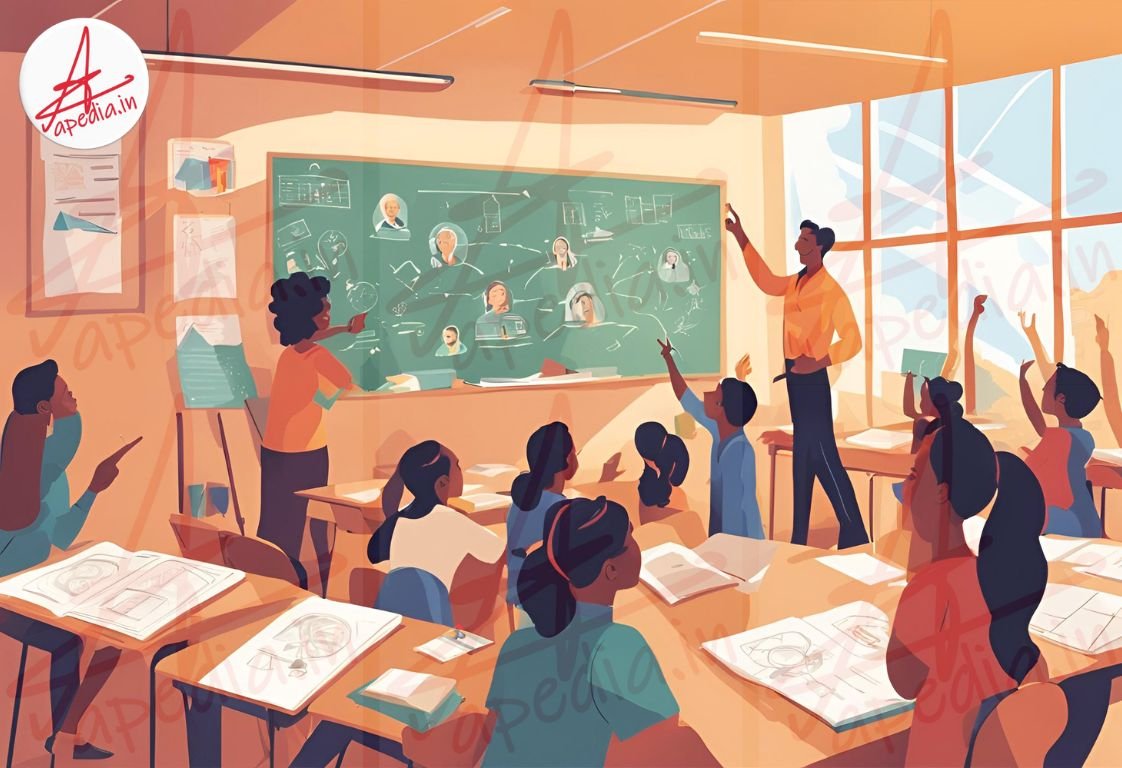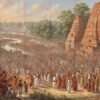Teacher’s Day is a momentous global occasion, celebrated with the intent of acknowledging the irreplaceable contributions of teachers and educators to individuals and societies. These devoted professionals not only impart knowledge but also inspire, motivate, and mentor the next generation, shaping future leaders, thinkers, and citizens. Their role goes beyond academics, influencing the moral and emotional development of students. Teacher’s Day is not just a symbolic gesture of appreciation but a profound acknowledgment of the teachers’ commitment, patience, and perseverance in molding young minds. While the specific date of the celebration varies across nations, the universal purpose of recognizing educators’ profound impact remains unchanged.
Educators are often called the architects of society, and for good reason. They lay the foundation of knowledge, ethics, and values that shape individuals and, by extension, societies at large. The influence of a teacher transcends the classroom; they foster critical thinking, nurture creativity, and encourage students to aspire toward personal and professional excellence.
- Shaping Character and Ethics: Teachers impart values such as honesty, empathy, cooperation, and responsibility, which are essential for developing responsible citizens who contribute to the betterment of society. Through both direct lessons and personal example, they influence how young people perceive and navigate the world.
- Fostering Intellectual Development: By encouraging curiosity, critical thinking, and problem-solving, teachers empower students to engage with the world intellectually. They provide the skills necessary to understand complex subjects, question assumptions, and develop informed opinions, thereby playing a key role in an individual’s lifelong learning journey.
- Mentorship and Guidance: Teachers often act as mentors and guides, providing emotional support and encouragement to students, particularly during challenging times. Their belief in their students’ potential can significantly shape a student’s confidence, self-worth, and future aspirations.
- Catalysts for Social Change: Throughout history, teachers have been at the forefront of social change, advocating for equality, justice, and peace. In many societies, they serve as leaders in promoting social justice, inclusivity, and equity, ensuring that education is accessible to all regardless of background or status.
- Innovators in Education: Teachers are not just transmitters of knowledge; they are innovators in their own right. Through creative lesson plans, interactive learning techniques, and technology integration, educators adapt to the changing educational landscape, ensuring students are equipped for the future.
- Personal Sacrifice: The impact of teachers often involves personal sacrifices, such as long hours spent preparing lessons, grading, and supporting students outside regular school hours. In many parts of the world, teachers work under challenging conditions, yet their passion for education drives them to give their best.
The idea of dedicating a day to honor teachers is not new. It has roots in ancient civilizations and has evolved over time to become a global phenomenon.
- Historical Roots in Ancient Civilizations:
- India: In ancient India, the tradition of honoring educators dates back to the Guru-Shishya (teacher-student) tradition. The celebration of Guru Purnima, which falls on the full moon day of the Hindu month of Ashadha, is a festival dedicated to spiritual and academic teachers. This day symbolizes the reverence students held for their gurus, who were seen not just as teachers of academics but as guides to enlightenment and moral living. The Guru-Shishya relationship was considered sacred, and the guru was viewed as a pathway to knowledge, wisdom, and virtue.
- China: In China, the tradition of honoring teachers can be traced back to Confucius, one of the most renowned educators in history. Confucius believed in the moral and ethical role of education and emphasized the need for a respectful relationship between teachers and students. Teacher’s Day in China is celebrated on September 10th, chosen to commemorate Confucius’s birthday, reflecting his immense contribution to education and philosophy.
- Modern Teacher’s Day: The modern-day concept of Teacher’s Day has been significantly influenced by progressive educators like Maria Montessori, whose work reshaped educational philosophy. Montessori’s child-centered approach revolutionized teaching methods, emphasizing the importance of nurturing a child’s curiosity and encouraging independent learning. Her belief that children learn best through hands-on experience and self-directed activity marked a departure from traditional rote learning. Montessori’s contributions laid the foundation for modern education systems that prioritize the holistic development of children, and her influence remains a cornerstone of Teacher’s Day celebrations around the world.
- UNESCO’s Involvement: In 1994, UNESCO (the United Nations Educational, Scientific and Cultural Organization) declared October 5th as World Teachers’ Day to commemorate the signing of the 1966 ILO/UNESCO Recommendation concerning the Status of Teachers. This recommendation set forth international standards regarding teachers’ rights, responsibilities, and working conditions, emphasizing the importance of professional development, job security, and fair compensation for educators. UNESCO’s World Teachers’ Day is now celebrated globally, drawing attention to the challenges teachers face and the crucial role they play in sustainable development.
Teacher’s Day is celebrated with various traditions, cultural customs, and practices worldwide, each uniquely honoring educators within their local context. Despite differences in observance, the underlying theme remains consistent: honoring teachers for their contributions to education and society.
- India (September 5th): Teacher’s Day in India is celebrated on September 5th, the birthday of Dr. Sarvepalli Radhakrishnan, a philosopher, scholar, and former President of India. He was a staunch advocate of education and believed that “teachers should be the best minds in the country.” In schools, students often perform plays, songs, and skits to show their appreciation. Teachers are also showered with cards, flowers, and small gifts from students and their families.
- United States (First Week of May): In the United States, National Teacher Appreciation Week is celebrated during the first full week of May, with National Teacher’s Day falling on the Tuesday of that week. Schools across the country organize events to honor teachers, including special assemblies, teacher appreciation breakfasts, and gift-giving. Many students write heartfelt notes or create personalized gifts to express their gratitude.
- China (September 10th): On Teacher’s Day in China, students often give flowers, cards, and symbolic gifts to their teachers. Schools may organize formal ceremonies where teachers are publicly recognized for their dedication, and in some regions, outstanding teachers receive awards from the government. The focus is on respecting educators and highlighting their role in fostering future generations.
- Mexico (May 15th): In Mexico, Día del Maestro (Teacher’s Day) is celebrated on May 15th. This date coincides with the Catholic feast day of Saint John Baptist de La Salle, the patron saint of teachers. Teachers are honored with special events, including parades, speeches, and award ceremonies. Students often give their teachers tokens of appreciation, such as handmade gifts or personalized messages.
- Argentina (September 11th): Argentina celebrates Teacher’s Day on September 11th, in memory of Domingo Faustino Sarmiento, the country’s seventh president and a pivotal figure in the development of Argentina’s educational system. Known as the “Father of the Classroom,” Sarmiento is celebrated for his efforts to improve public education and champion teacher training.
The ways in which Teacher’s Day is celebrated may vary greatly depending on local customs, but the overall expression of gratitude remains universal. Some of the most common celebrations include:
- School-Based Events: Students often organize performances, talent shows, and tribute ceremonies where they express their appreciation for their teachers. These may include poems, songs, and skits dedicated to their educators. In many schools, students take on the role of teaching for the day, allowing their teachers to enjoy a well-deserved break.
- Teacher Appreciation Ceremonies: In some countries, particularly where government recognition is high, formal ceremonies are held to acknowledge outstanding teachers. These events may include award presentations, speeches by educational leaders, and public recognition of teachers’ achievements.
- Personal Gestures of Gratitude: A more intimate and personal form of celebration includes students and parents writing thank-you letters, creating handmade cards, or gifting flowers, chocolates, or other tokens of appreciation. These gestures can have a lasting emotional impact on teachers.
- Community Involvement: In some regions, communities come together to celebrate Teacher’s Day by hosting fairs, cultural events, or educational seminars. These activities bring together parents, students, and community members to collectively honor the local teaching profession.
Teacher’s Day remains a vital occasion that reminds us of the importance of educators in both personal development and societal progress. By celebrating Teacher’s Day, we not only honor those who dedicate their lives to teaching but also emphasize the value of education itself as the bedrock of a thriving, informed, and equitable society. Through this global recognition, we inspire future generations of educators, reaffirm the significance of education, and uphold the legacy of teachers as the guardians of knowledge, values, and inspiration.



